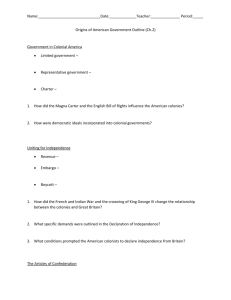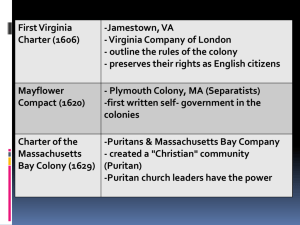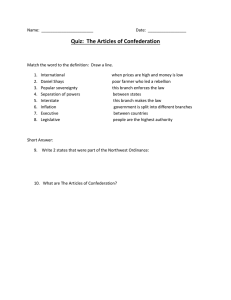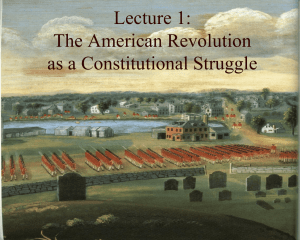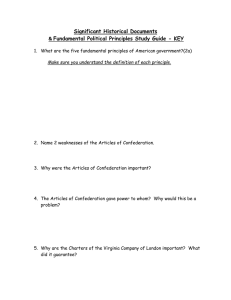Reasons for Confederation Main Reasons for Confederation
advertisement
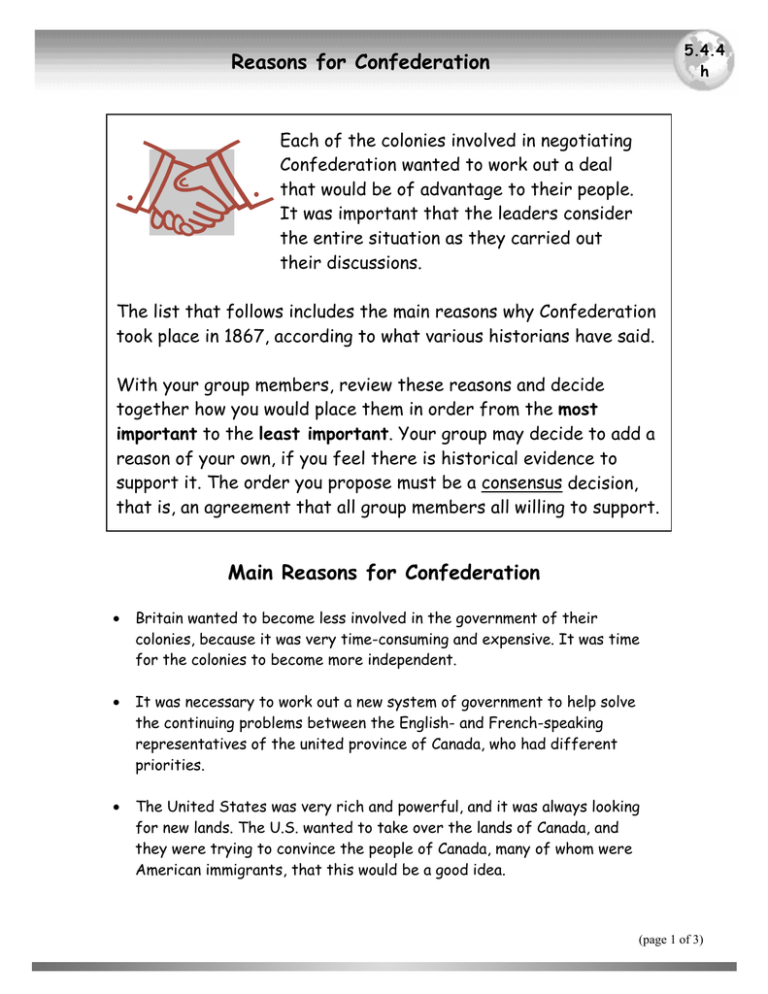
5.4.4 h Reasons for Confederation Each of the colonies involved in negotiating Confederation wanted to work out a deal that would be of advantage to their people. It was important that the leaders consider the entire situation as they carried out their discussions. The list that follows includes the main reasons why Confederation took place in 1867, according to what various historians have said. With your group members, review these reasons and decide together how you would place them in order from the most important to the least important. Your group may decide to add a reason of your own, if you feel there is historical evidence to support it. The order you propose must be a consensus decision, that is, an agreement that all group members all willing to support. Main Reasons for Confederation • Britain wanted to become less involved in the government of their colonies, because it was very time-consuming and expensive. It was time for the colonies to become more independent. • It was necessary to work out a new system of government to help solve the continuing problems between the English- and French-speaking representatives of the united province of Canada, who had different priorities. • The United States was very rich and powerful, and it was always looking for new lands. The U.S. wanted to take over the lands of Canada, and they were trying to convince the people of Canada, many of whom were American immigrants, that this would be a good idea. (page 1 of 3) 5.4.4 h Reasons for Confederation • As the colonies grew, they were building railroads and roads, which cost a great deal of money. If several smaller colonies combined, they would have more taxes and more money to pay their debts as they grew. • The “Great Coalition”, which involved leaders such as John A. Macdonald, George Brown, and George-Étienne Cartier, had proven by their influence that it was possible for English and French-speaking Canadians to agree on big questions such as government reform. • In some of the colonies, especially Canada East and Canada West, there was one government problem or crisis after another. A new system of decision making, with one central government and provincial governments to deal with local issues, might help make government more stable in the colonies. • The United States had gained their independence from Britain in 1783 after a long war. Not long after this, the states became involved in a war amongst themselves, (the Civil War). The British colonies did not want any more wars, and by combining under one strong central government, they might avoid further wars. They would also have a stronger military defence. • Is there another reason your group sees in the historical evidence? ______________________________________________________________ ______________________________________________________________ ______________________________________________________________ ______________________________________________________________ (page 2 of 3) 5.4.4 h Reasons for Confederation As a group, decide by consensus on the order of importance (priority) for each of the suggested reasons that motivated Confederation. Provide your justification based on reasoning and historical evidence. Be prepared to present your “Top Five”. Reason/Motivation Why it is important/evidence 1. Most important: 2. 3. 4. 5. 6. 7. 8. Least important: (page 3 of 3)
